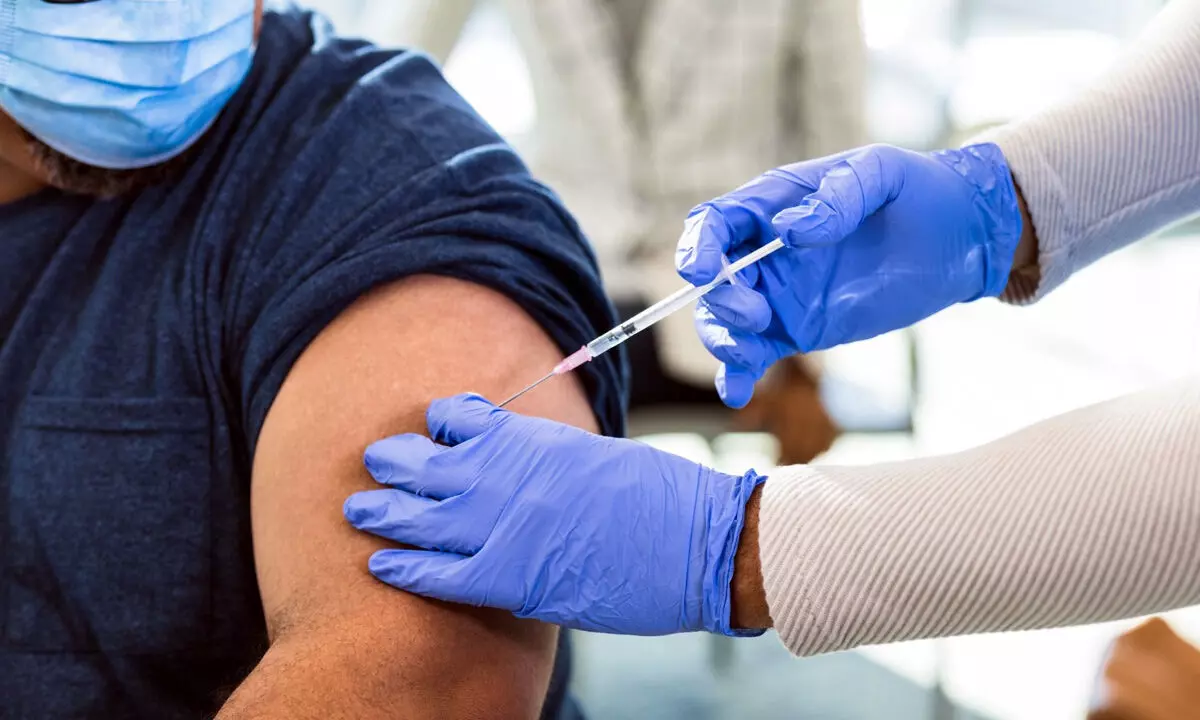Covid booster needed for broad protection against Omicron variants, studies show

For representational purpose
A COVID-19 booster dose will provide strong and broad antibody protection against Omicron sublineage variants of the SARS-CoV-2 virus, two new studies using serum from human blood samples suggest.
Washington: A COVID-19 booster dose will provide strong and broad antibody protection against Omicron sublineage variants of the SARS-CoV-2 virus, two new studies using serum from human blood samples suggest.
Researchers from the Ohio State University in the US tested neutralising antibody levels against the BA.2 and BA.3 Omicron variants and Deltacron, a recombinant variant created by the exchange of genetic material between Delta and Omicron. The studies, published in the New England Journal of Medicine (NEJM), and Cell Host & Microbe journal, showed that a third mRNA vaccine dose was required to generate a high enough concentration of antibodies to neutralise BA.2 and Deltacron, as well as other Omicron variants, including the original BA.1, and BA.1.1. Antibodies produced by just the two-dose series of mRNA vaccines were enough to neutralise BA.3 -- a sign this variant is not likely to produce a new surge of Omicron infections, the researchers said.
"Three doses is better for everything," said Shan-Lu Liu, the senior author of both studies and a virology professor at Ohio State University. "People have been asking about the recombinant Deltacron and also BA.3, and now we have an answer. And it's good news," said Liu Based on the neutralisation pattern, the researchers said, one booster shot can protect against BA.2 and Deltacron, and they do not suspect that BA.3 will become predominant because it is sensitive to neutralisation by even two doses. In the study published in NEJM, researchers tested antibody levels in serum from 10 health care professionals at Ohio State's Wexner Medical Center.
After two vaccine doses, on average, antibody levels were 3.3-fold and 44.7-fold lower against BA.3 and Deltacron, respectively, than those that neutralised the parent SARS-CoV-2 virus, they said. After the booster, antibody levels were much higher against all variants tested, and the same antibody level reductions were 2.9-fold and 13.3-fold -- showing a dramatic improvement in protection, particularly against Deltacron, according to the researchers. The researchers then examined blood samples from 18 patients in the ICU during the Delta wave of the pandemic, and found comparable levels of antibodies against the parent virus and BA.3, but 137.8-fold lower concentrations against Deltacron compared to the parent virus. Blood samples from 31 hospitalised non-ICU patients during the Omicron surge showed much better antibody protection against Deltacron, they said.
"The Deltacron spike protein is structured similarly to other Omicron variants, so people infected with Omicron seem to have pretty good protection against Deltacron. But people infected with Delta had pretty weak protection against Deltacron," said John Evans, a Ph.D. candidate at Ohio State, and the first author of the studies. "However, compared to the booster, infection by Omicron provides much less protection against Deltacron," Evans said. The Cell Host & Microbe study tested antibody levels in serum from 48 health care professionals after their second mRNA vaccine dose and from 19 after their third mRNA vaccine doses, as well as 31 COVID-19 patients hospitalised during the Omicron surge. "For two vaccine doses, health care workers had very weak neutralising antibody concentrations against the Omicron variants, but after the booster it evened out," Evans said.
"The neutralising antibody levels were still lower against Omicron compared to the parental virus, but much more comparable across variants and much higher. So the booster provides much stronger protection and much broader protection," he said. Patients with Delta or Omicron infection were similarly protected against their respective infectious variants, and a vaccine dose on top of infection improved protection, the researchers said. Among all of the health care professionals and infected patients studied, people who had received three vaccine doses had the broadest and strongest antibody protection overall, they added.
















